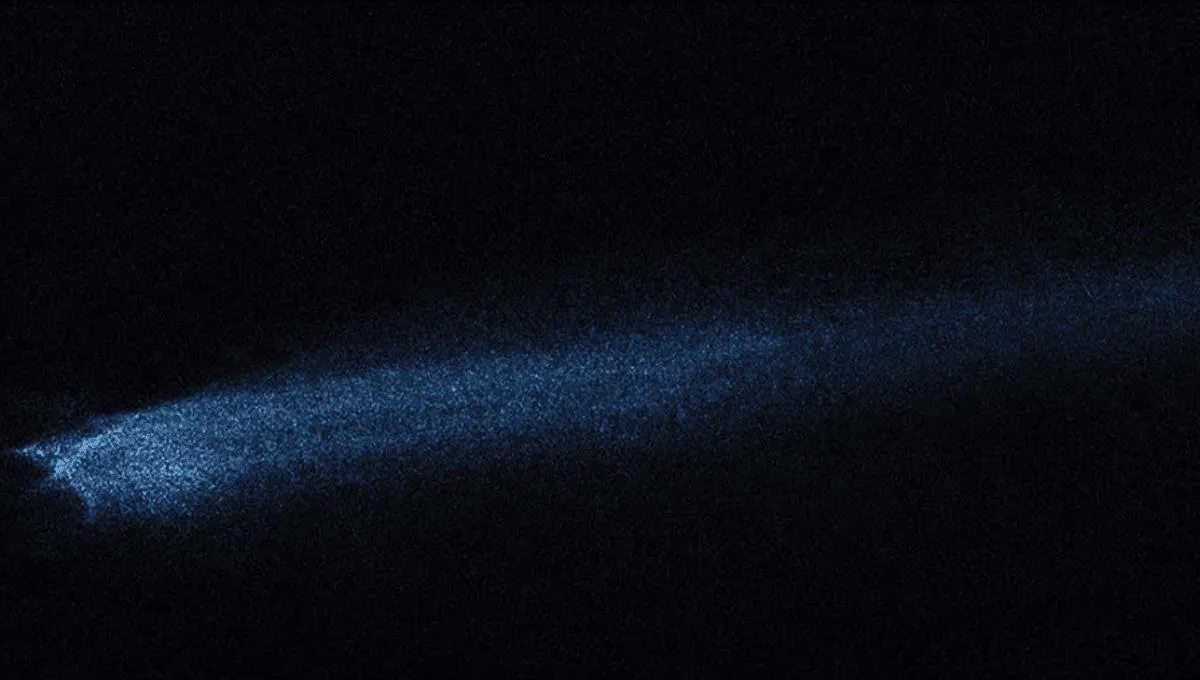
In December 2023, the discovery of 2024 YR4 made international headlines, igniting concerns about its potential collision with Earth. Initially, scientists estimated a small chance of impact—less than 3 percent—within a timeframe of eight years. However, further analysis of its orbit led to a reevaluation of these probabilities. Currently, the likelihood of a direct hit on Earth has significantly decreased to nearly zero, while the possibility of 2024 YR4 striking the Moon in seven years stands at approximately 4 percent.
Measuring an estimated 60 meters (200 feet) in width, 2024 YR4 is not large enough to cause a mass extinction event like the dinosaurs experienced, but its size is substantial enough to inflict serious local damage if it were to impact a populated area. Additionally, an ocean impact could generate devastating tsunamis. While the immediate threat to Earth is minimal, the potential effects on the Moon—and indirectly on Earth—remain significant.
The prospect of 2024 YR4 colliding with the Moon has sparked excitement among space enthusiasts who anticipate a spectacular meteor shower resulting from the ejected material. This event could create a celestial display lasting several days, as debris escapes the Moon's weak gravity and enters Earth's atmosphere. However, this scenario raises concerns about the safety of existing satellites, including the James Webb Space Telescope (JWST) and the International Space Station (ISS), which could be at risk from the resulting meteoroids.
A team led by Brent Barbee from NASA’s Goddard Space Flight Center is currently examining strategies to minimize the risks posed by 2024 YR4. While numerous methods for addressing asteroid threats exist, such as deflecting them by impacting their surfaces, Barbee and his colleagues argue that 2024 YR4 presents unique challenges. The main concern is ensuring that any deflection does not inadvertently redirect the asteroid towards Earth instead of the Moon.
Asteroid deflection strategies typically require advance planning and precise knowledge of the object's mass and composition. Unfortunately, due to the tight timeline, there may not be sufficient time to gather this critical data for 2024 YR4 before a potential impact. The asteroid will make a close approach to both Earth and the Moon in 2028, allowing scientists to refine its orbit and assess any risk of collision.
In February 2026, the JWST is scheduled to conduct a detection attempt that could provide valuable orbital data, potentially two years in advance of the 2028 close approach. If the results indicate a heightened risk, it may be feasible to launch a mission to address the asteroid threat, provided preparations are made ahead of time.
Barbee and his team are considering the possibility of launching a reconnaissance mission or redirecting existing missions, such as Psyche or OSIRIS-APEX, to gather more information about 2024 YR4. Early reconnaissance would help determine the risk of a lunar impact, while a later mission could provide precise measurements of the asteroid’s size before any deflection attempts.
One pressing question remains unanswered: who will finance a mission to address the 2024 YR4 threat? While the fate of the world is at stake, funding such initiatives is complicated, especially as many satellites are now privately owned rather than publicly funded. The complexities surrounding financial responsibility could hinder timely action against this potential threat.
Ultimately, as we continue to monitor 2024 YR4, the excitement of a possible meteor shower must be tempered with the reality of safeguarding our satellites and our planet. With careful planning and international collaboration, we may be able to mitigate the risks posed by this cosmic neighbor.